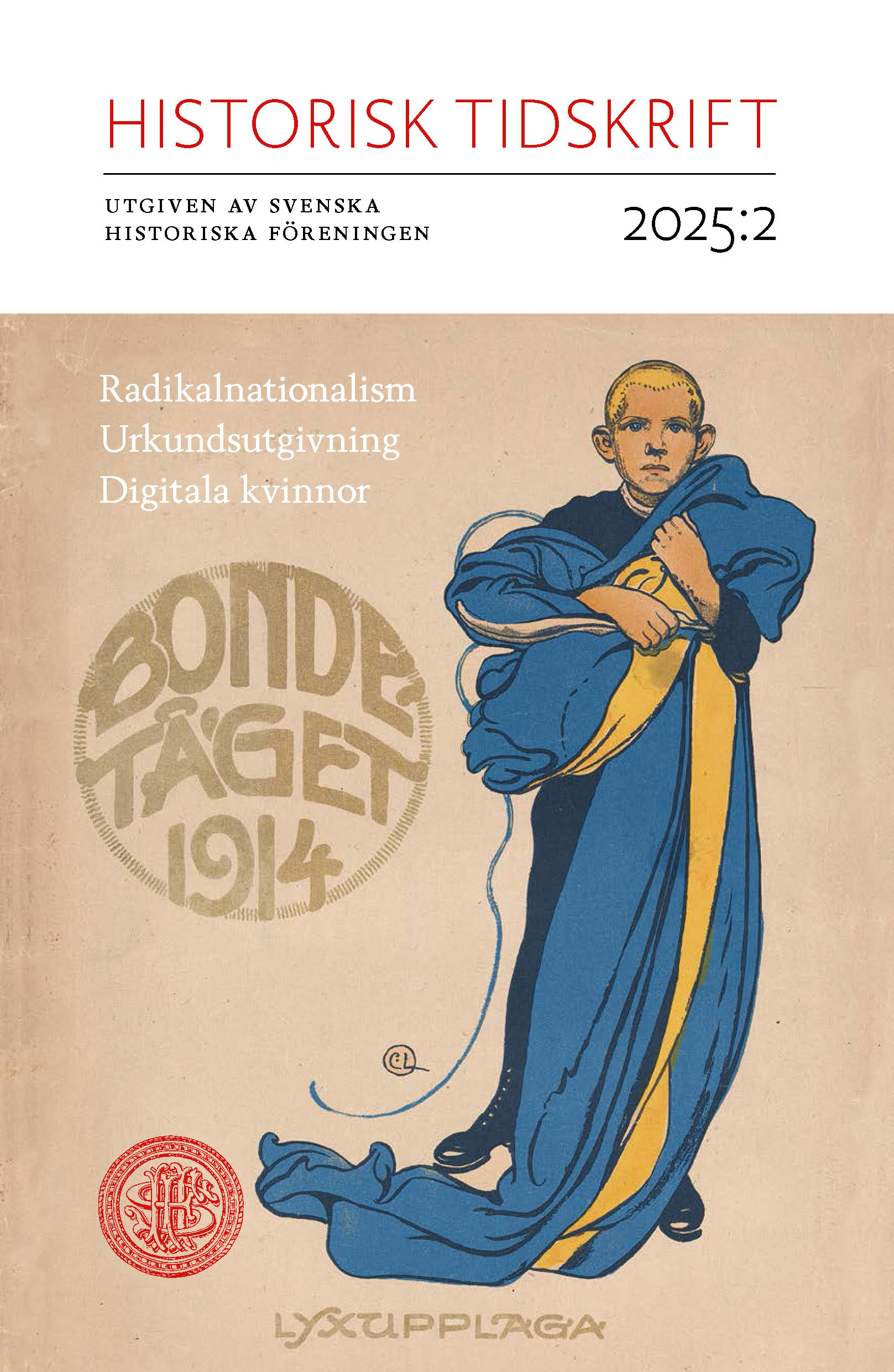Abstract
Genesis of Swedish radical nationalism
While historical studies of fascism in Sweden typically start in the interwar period, this article traces the political-ideological roots in the nationalist era leading up to the Great War. It depicts the genesis of Swedish radical nationalism, a political ideology centred on tying an imagined people to a bordered territory. In the early twentieth century, radical nationalism in Sweden articulated that the people were diluted by cultural decadence and uncontrolled migration while the territory was threatened by geopolitical aggression from Russia. This radicalisation of national defence was driven by a gendered logic of masculinist protection, reinforced by an emergency temporality oriented towards national rebirth. Whereas national conservatism cultivated the memory of paradise lost, radical nationalism became the politics of resurrection: Swedishness restored and Sweden reborn. This ideational assemblage of defence and rebirth was articulated in a series of books, articles, and journals published by three men – Rudolf Kjellén, Adrian Molin, and Teodor Holmberg – who have become ideological sages for the nationalist movement today; radical-nationalist think tanks are republishing Kjellén’s and Molin’s political manifestos while the Sweden Democrats publicly acknowledges its debt to Holmberg’s political thought. In that sense, the genesis of Swedish radical nationalism serves as an ideological resource when demanding the reinforcement of the exclusionary mechanisms of the modern nation-state.

